Robert Englund says he suspected A Nightmare on Elm Street was destined to have a large gay fan following when he saw several drag queens dressed as his costar Heather Langenkamp's character, Nancy Thompson, at a costume party in 1985.
"I remember I went to a party for Halloween in Hollywood shortly after the first Nightmare came out, and there were already men doing drag as Nancy -- full drag, in the pajamas with the embroidery, and the white streak in the hair," he says. "It was fabulous!"
Looking back more than 30 years after the first film in the franchise slashed its way into pop culture history, Englund has a theory why the first heroine of Elm Street and the actress who played her fiercely resonated with gay horror fans.
"There's always been a great affection in the gay community, and I share this from my point of view as a heterosexual, for the survivor and the diva," he says. "That strong woman thing that gay men in the '40s and '50s identified with in actresses like Joan Crawford and Bette Davis, there was a transference going on in the early '80s because there was no Bette Davis then. I think young teen boys and girls in the late '70s and early '80s who were gay made their transference with characters like the survivor girl, which is a great ingredient of the horror movie, starting with Jamie Lee Curtis and coming to full blossom with Heather's character in Nancy."

"Plus Heather has got a bit of that Judy Garland in The Wizard of Oz element to her," he adds. "So that area where gay culture and Hollywood crossover, Heather inherited some of those fans and I think that's why Nancy became that supplemental diva for the gay community."
While Nancy hooked a new generation of gay horror fans in the original Elm Street adventure, it was the film's first sequel that reeled them in for more. A Nightmare on Elm Street 2: Freddy's Revenge took a bold turn by replacing the traditional "final girl" with male protagonist Jesse Walsh, played by gay actor Mark Patton. The movie also contained gay subtext purposefully woven into the script by screenwriter David Chaskin, which was further highlighted by stylistic choices made during filming. Most members of the sequel's production team have denied they were aware of the gay undertones throughout Nightmare 2 over the years. But Englund tells another story and admits he intentionally worked to bring the film's subtext closer to the surface.
"I was aware of it and I think people were more aware than they disclose now," he says wryly. "Certainly in the staging of scenes like where Jesse crawls into his best friend's bedroom and gets in bed with him. It's this great 50/50 shot, it's sexy, and it's redolent with the undercurrent of that scene. My interpretation of what Freddy was doing throughout the film was he was picking up on that subtext, on the boy's latency. He was exploiting that and teasing Mark's character with it."
He stops and chuckles, adding, "I certainly remember asking the director if I could get real sexy with Mark's mouth in another scene -- that moment where Freddy literally circumscribes Mark's mouth with the blade. In that moment it's real. Is Freddy going to kiss him? Is it an oral sex innuendo? I remember wanting the audience to go crazy with that and playing with the fact that Freddy is in the libido. He's in the subconscious and playing with it all the time." (Englund discusses Nightmare 2's queer subtext in greater detail in Mark Patton's upcoming documentary Scream, Queen! My Nightmare on Elm Street.)

Englund says his ease recognizing queer culture wasn't exactly common among his heterosexual peers in the days when Freddy started frightening filmgoers. But the man who began to study acting at the age of 12 and later honed his craft at a U.S. branch of London's Royal Academy of Dramatic Art attributes that portion of his education to the many gay friends he made during the early days of his career.
"I'm an old theater boy, and the theater has always been welcoming to everyone. It's just the nature of theater," he says. "So I had many gay friends and I crashed on couches at their houses when I started out as a working actor. I was embraced by those people and they were the ones who taught me about the clues and cues in Vincente Minnelli films as well as the nods and winks in George Cukor films. They absolutely influenced me as an actor and as a person."
A specific memory springs to mind, and he giggles as he indulges in the nostalgic moment. "In fact, my first time in New York I was staying with a buddy who was one of the stars of Fortune in Men's Eyes and his roommate, Bobby, who happened to be gay, favored mink coats, and could make the best poor man's tequila sunrise with lemonade and orange juice. I remember saying 'Bobby, show me New York,' and the next thing I knew I was being squired about the city by this gorgeous 6-foot-6 man in a floor-length mink."
Years later, as one nightmare was catapulting Englund to international fame, he watched in horror as another began destroying many of his closest friends and colleagues.
"I think people tend to forget it was a different atmosphere for gay people in the '70s before AIDS. It may have been a kind of 'don't ask, don't tell time,' but it also seemed to be a much kinder, gentler time -- especially in the cities were I worked like New York, Los Angeles, and San Francisco. I truly believe there was a time where the door was opening and you could see the sunlight," he says, as his voice shifts into a somber tone. "But that all changed in the '80s and there was a huge backsliding in American culture. The fearmongering that came with that plague was palpable. Even people you thought knew better ended up succumbing to that fear."

The growing homophobia and panic AIDS brought with it angered Englund, and he recalls the exact moment he realized the epidemic had become a full-blown crisis. "I remember being in a dive bar with Fisher Stevens and my then-girlfriend in New Haven. We were rehearsing a play and Fisher made a phone call to Harvey Fierstein. Harvey told him how distraught he was because he'd been going to a funeral every day," Englund says. "And all the undergraduates that were in theater technical departments -- costuming, wardrobe, lighting, scenic design -- they were all being drafted out of school to go to work on Broadway because the body count was so high. I realized New York was absolutely being devastated by AIDS. I'll never forget that phone call because that's when it hit me, the statistics of it. It really hit me."
While the mid-'80 were a harrowing time, Englund says he's thankful he was able to be an essential part of films from that era that resonated with people from "outsider" communities.
"Early on, the Nightmare on Elm Street films were seen as a sort of outsider art before they became overhyped, and they were embraced by various cultures -- not just gay culture, but piercing culture, goth culture, the blends of those cultures, heavy metal kids, and so on. And I became embraced as an outsider actor-artist for a lot of those fans too," he explains. "I think a lot of my fan base, and Nightmare's came from people who felt like an outsider in some way in their early life. I love that people found safety in others like them through my films or learned about them from a fellow outsider friend, big brother, or partner they would cuddle with as they watched those movies on an old battered VHS tape somewhere in the Midwest where they couldn't really be themselves in the open."
The 68-year-old actor-director says affecting the lives of fans has been one of the most rewarding aspects of his career, and he gives a lot of credit to A Nightmare on Elm Street creator Wes Craven for not only giving him the opportunity to slip on the glove of Freddy Krueger, but reminding him of the joys of genre cinema.
"I'd become quite the theater snob, and when I started working with Wes he gave me a new respect for horror, science fiction, and fantasy as an equal opportunity partner in the history of Hollywood," Englund says of Craven, who died in August of cancer. "I had forgotten about the joy of movies in my childhood. He reminded me of the Hammer films I'd seen at the drive-in and the nights I'd have sleepovers at my buddy's house, lying around in a mid-century den with us in our crummy Sears sleeping bags, eating popcorn as we watched the unedited King Kong on CBS at 11:15 at night. Wes reminded me of how excited I was as a boy watching those movies and how they impacted my imagination. He taught me to respect, trust, and love those memories. That's the gift he gave me."

Though Wes Craven is no longer with us and Englund is happily retired from playing the character that made him a horror icon, he knows Freddy Krueger's reign of terror will continue well into the future. Not even Hollywood's failed attempt to reboot A Nightmare on Elm Street in 2010 has been able to defeat the burned boogeyman. New Line Cinema recently announced a new installment in Freddy's franchise is in the works. Englund speculates the new film won't be another remake of the original and hopes instead for a bolder choice: a new film based on Nightmare 2 that embraces the 1985 sequel's gay subtext.
"I think it would be real interesting to see, in this day and age, how they would treat the relationship between the two boys," he says. "I think the main character would need to be closeted in the beginning, and at the other end of the arc, in his battling of Freddy, he knows who he is. He comes to terms with it and he's proud of it. Instead of the survivor girl, we have the survivor boy. I'd like to see a new film going where the original logically leads. I certainly think audiences are ready for that."
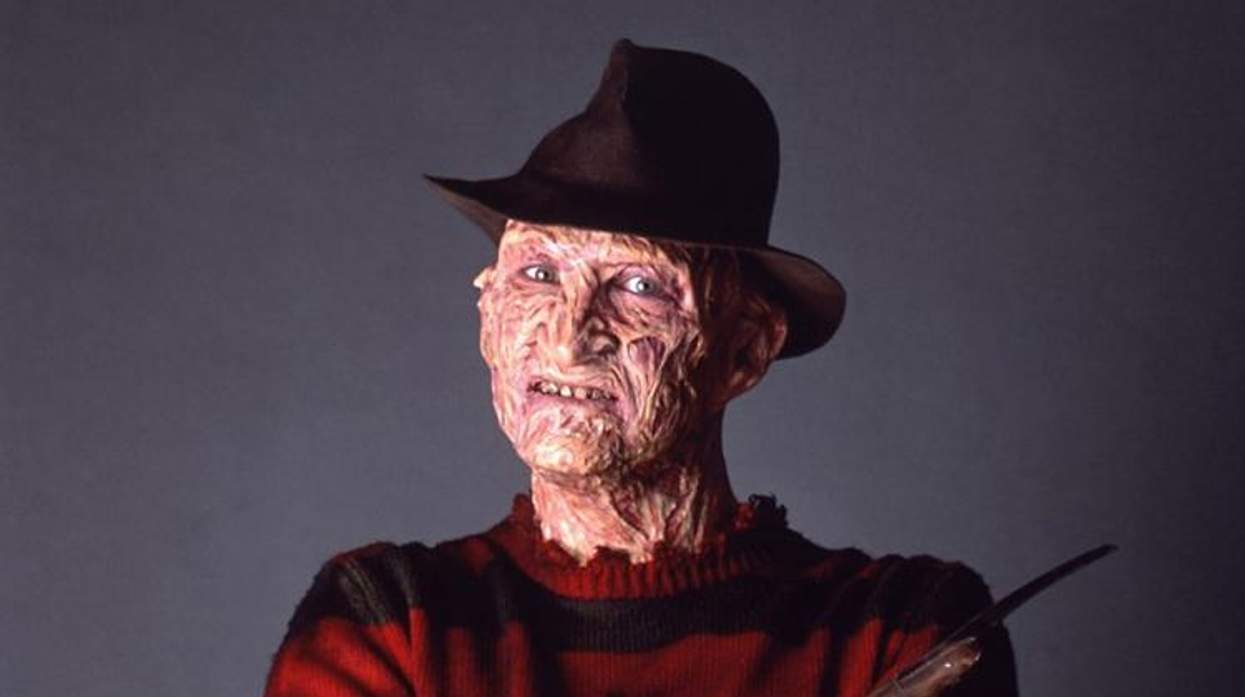

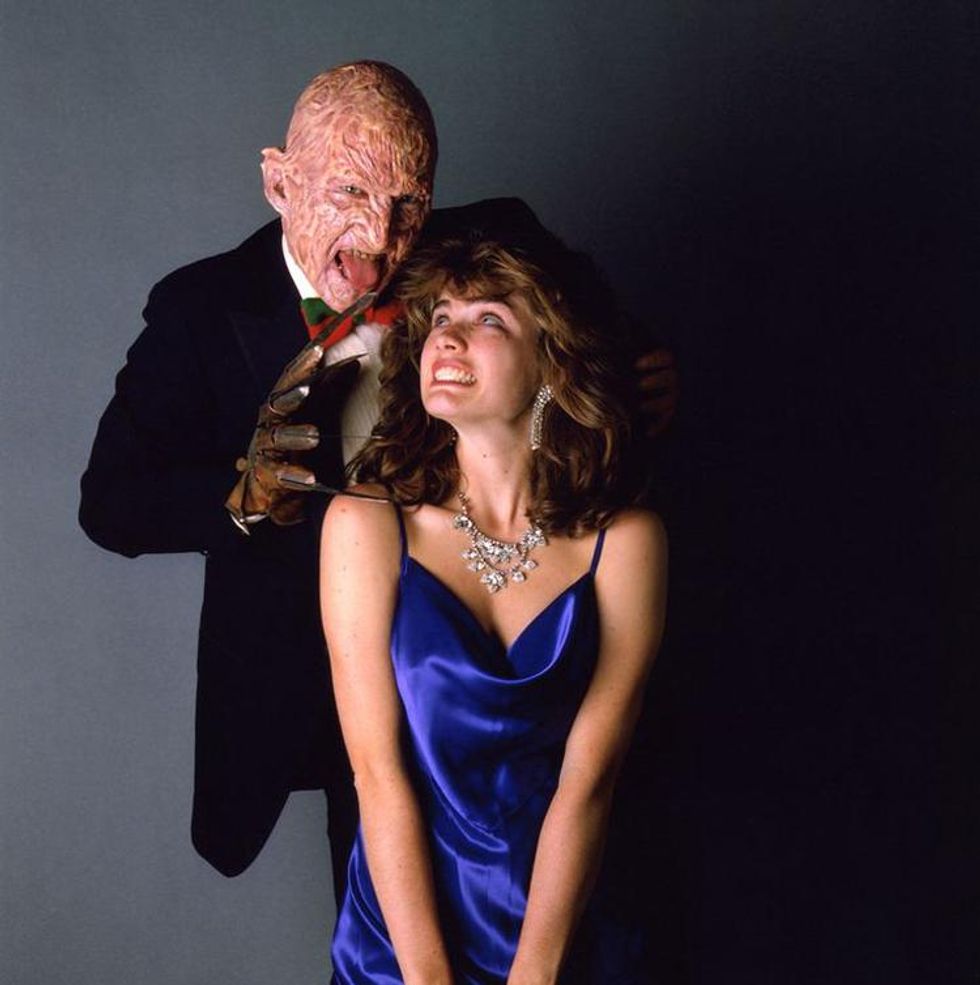
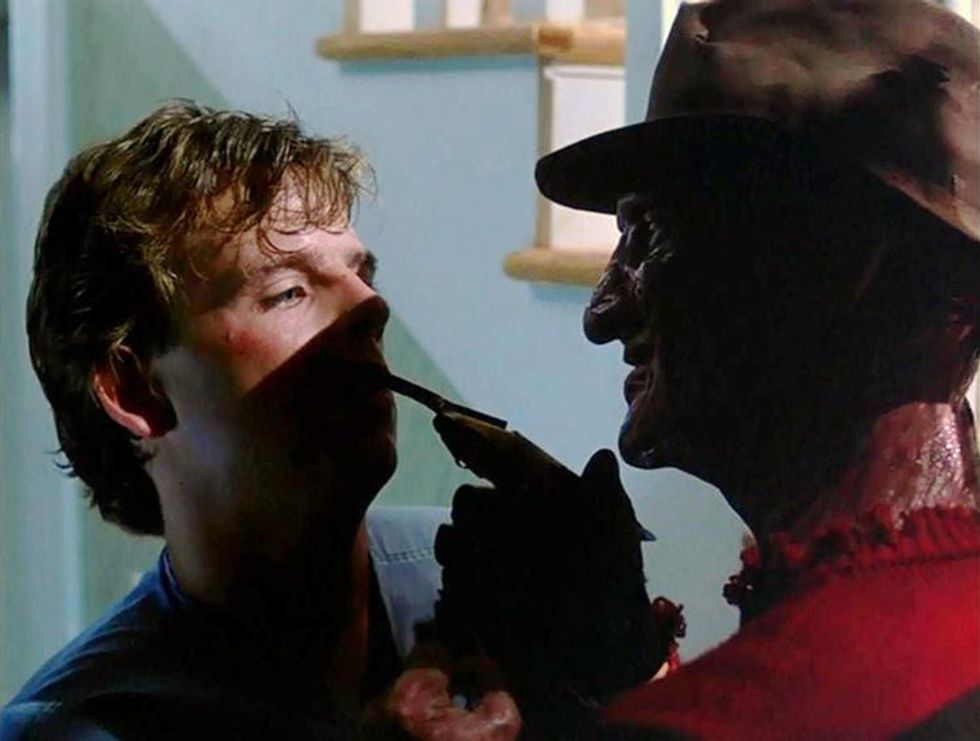
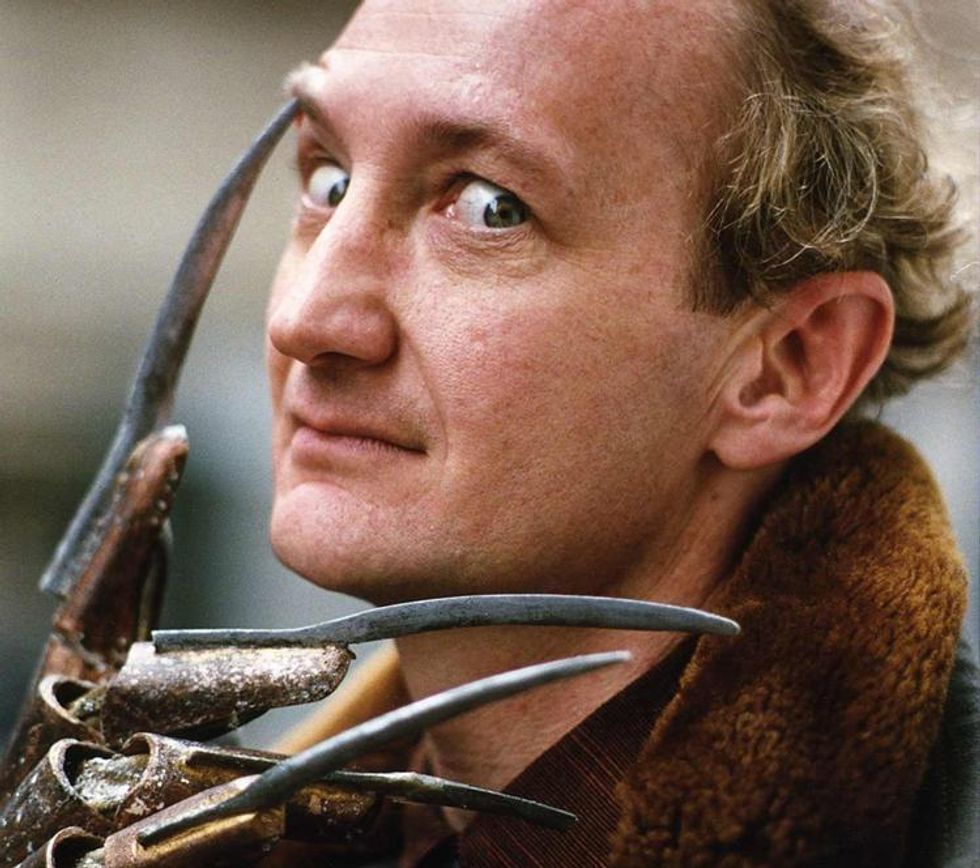
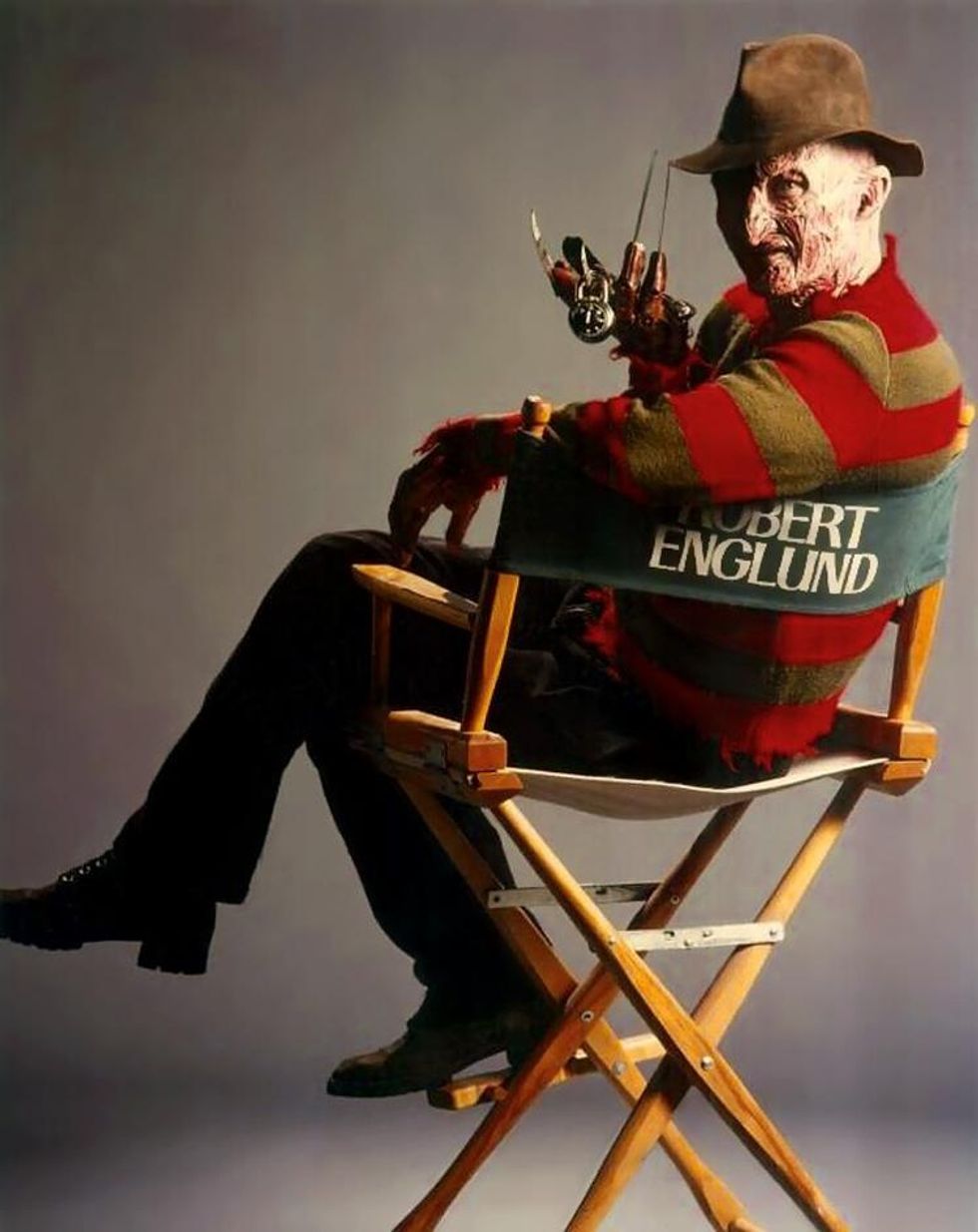


































































Charlie Kirk DID say stoning gay people was the 'perfect law' — and these other heinous quotes